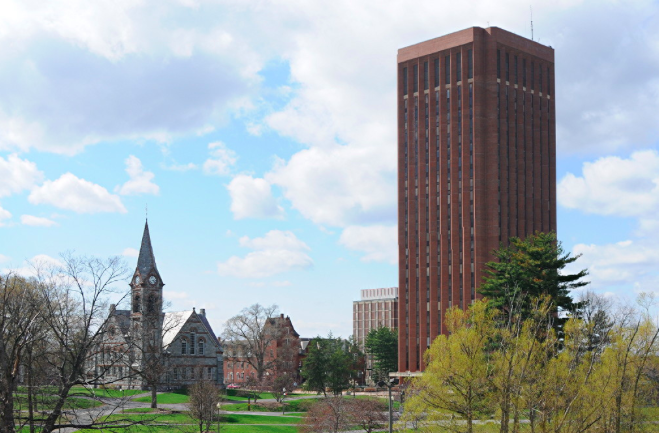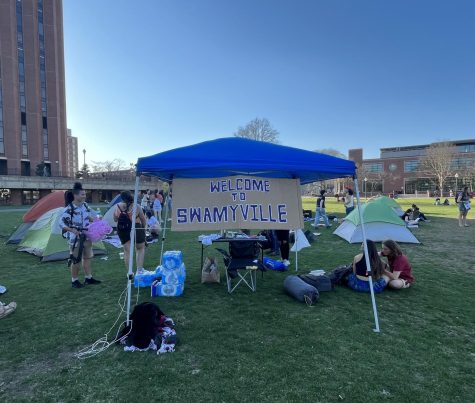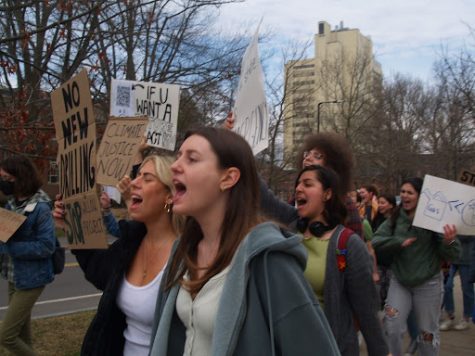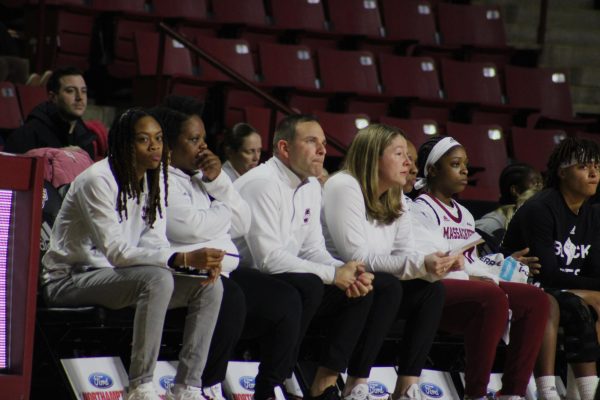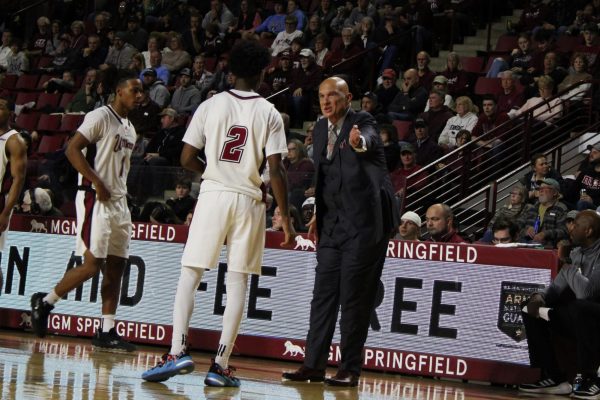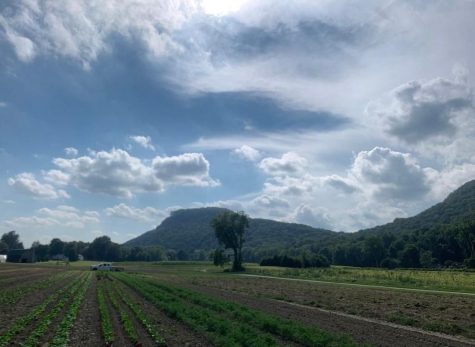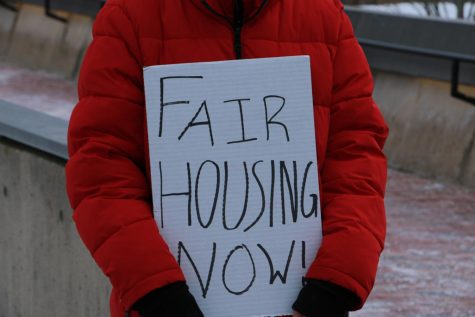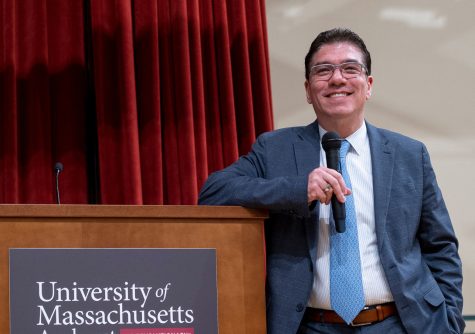Du Bois Library screens climate change documentary
AMHERST — More than 100 students and community members gathered on the top floor of W. E. B. Du Bois library at the University of Massachusetts Amherst Thursday night for a film screening of “How to Let Go of the World and Love All the Things Climate Can’t Change,” created by Grammy-nominated director Josh Fox.
The emotional documentary explores climate activism in communities across the globe and the irreversible impact industrialization has made on the atmosphere.
The film was followed by an open discussion, as part of the library’s current series named “Talking Truth: Finding Your Voice Around the Climate Crisis.”
Every seat in the room was filled. Students stood, sat on the ground and sat atop tables in the back of the room to see the screen. Community members of all ages waited in light-hearted anticipation, sipping iced chai tea from the refreshment table.
Minutes into the film, the emotion in the room became heavy and intense. In the introduction of the film, Fox narrates over vivid flashing images of New York in the aftermath of Hurricane Sandy. The film showed subways underwater, beaches destroyed and unstoppable gas fires blazing through neighborhoods. The stories of these people brought the audience to laughter and tears.
For example, Mike Rodriguez’s home in Breezy Point, New York was destroyed by the storm, save for a Santa costume hanging in his living room.
“It’s dry … I just bought that because I needed a new suit to play Santa, I do it every year at St. Finbar’s for the kids with autism,” Rodriguez said. “So I said, this is one of those little miracles.”
Just down the street, Hurricane Sandy drowned a woman in her living room.
“As a journalist, you have that decision to make. That day I just didn’t have the heart to walk up to that man grieving his wife and ask, ‘Can I get your story on camera?’” Fox said.
Environmental activist Bill McKibben appeared in the film, offering a lighter take on the issue.
“We should call it what it is — Hurricane Exxon … We should go right through the alphabet finding every oil and coal and gas company ‘cause it’s these guys’ carbon pouring into the atmosphere that are super-charging these hurricanes,” McKibben said jokingly.
Bri Jackson, a community activist, was also affected by the disastrous weather. Jackson lives in a neighborhood in Queens where 65 percent of the population is 200 percent below the poverty line. Despite the food and shelter aid, Jackson said there was more work to be done.
“We need love, we need counseling, we need help unconditionally,” Jackson said. “Wake up.”
Jackson’s message stuck with Fox, who decided to travel the world to discover the ways human industrialization has damaged the planet and to meet the communities fighting against climate change.
Music played as the credits rolled and the UMass audience clapped along. Some students up front stood up and began dancing along as well. The energy in the room reflected how truly moved everyone was by the film’s message.
In a small discussion afterward, participants introduced themselves by first name and shared their thoughts about the film. Students, faculty, and community members all listened intently to one another as one student, named Katie, discussed the protesting that stopped UMass investments in the fossil fuel industry.
Students, faculty, and community members listened intently. One student, named Katie, discussed the protest that put an end to UMass investments in the fossil fuel industry.
“We had UMass divest which was amazing and we’ll continue to do great things, and the Climateers … I can help make a difference and make sure there is a bright future for my new nephew,” she said.
The Climateers are a student-run group at UMass that advocate for environmental justice.
“What can we do here?” asked Richard “Dick” Stein, a retired UMass professor and climate activist. “I think that the action of the students in bringing about divestment by the university is a very positive thing, and I think we have to look at other measures of this sort.”
Richard Stein is active in promoting an act that will be considered by the the Massachusetts legislature called the Carbon Pollution Fee & Rebate, which would force producers of fossil fuels to pay a fee, and the money would be paid back to everyone in equal amounts.
“I think we ought to to push for this and serve as the nucleus for further movement in this direction,” Richard Stein added.
For Hadley resident Jonathan Stein, the event was the second time he watched the film. Regardless, he was deeply moved and glad he came. A climate-minded individual, Jonathan Stein was part of the crowd at Whitmore Administration Building during the Divest UMass sit-in protest in April.
“I was here at Whitmore when you were celebrating after the whole week of divestment actions, I was just part of the crowd, and was really happy to be witnessing what UMass students did and supporting it,” said Jonathan Stein. “I feel myself coming up against despair and hopelessness and it’s ‘too late’ and ‘there’s too much water under the dam’ and all that, so earlier in April I organized a community grief ritual on climate crisis and it was very moving.”
Jonathan Stein said he plans to organize another community climate grief ritual next year.
The library will continue the discussion around climate change and hold a 45-minute mindfulness practice at a session titled “Holding Earth: Mindful Climate Action” Monday at 3 p.m.
For more information on the DuBois Library series Talking Truth: Finding Your Voice Around the Climate Crisis, click here. For readers with HBOGO, watch the film here.
Email Rachel at [email protected].

